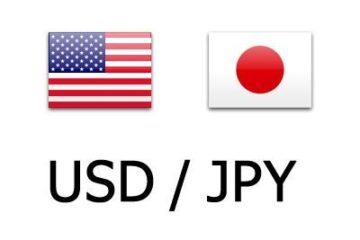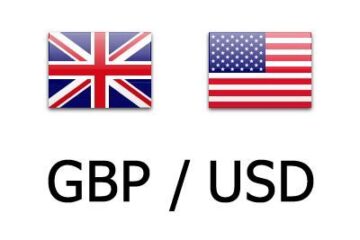Elon Musk’s Tesla (TSLA) is a juggernaut in the electric vehicle industry.
According to data from Kelley Blue Book, Tesla’s popular Model Y is among the top ten best-selling cars in the United States. Last year, Tesla sold about 405,900 units of the EV, a figure only surpassed by the Toyota RAV4 crossover SUV, the Chevy Silverado, and the Ford F-Series pickup trucks.
💰💸 Don’t miss the move: Subscribe to TheStreet’s free daily newsletter 💰💸
However, in today’s EV market, a wide field of traditional automakers and startups is competing for Tesla’s breadcrumbs. One of those manufacturers is Lucid (LCID) , a Newark, Calif.-based firm that just introduced its second car.
Recently, it began sales of the Gravity SUV, but its first model, the $71,400 Air sedan, is an EV that has garnered the attention and praise of well-known automotive authorities. Alongside other honorees like the Honda Accord and Tesla’s Model 3, the Lucid Air Pure and Touring earned a place on Car and Driver’s 10Best list.
However, according to Lucid CEO and CTO Peter Rawlinson, the former Vice President of Engineering and the Chief Engineer of Tesla’s Model S, cars aren’t exactly the core of its business, declaring that he has this vision for his EV brand.
Peter Rawlinson, Lucid Motors CEO. In a recent interview he said his vision is to be more than a carmaker.
Lucid CEO wants Lucid to be “The Intel of EVs”
In a new interview with InsideEVs, the Lucid CEO and CTO said that he sees the firm’s customer-facing EV business of Lucid’s future plans.
He hopes that Lucid evolves from an automaker that purely makes EVs into a company that enables other automakers and entities to license its EV software and hardware for their own vehicles. He likens his future ideas to the business model of one of the most well-known chip companies in the world.
“I’d love it to be 20-80,” Rawlinson told InsideEVs. “Twenty percent doing cars, 80 percent licensing. Because the vision I have for Lucid is just as there’s an Intel inside your laptop, there’s a Lucid inside a Honda or a Toyota.”
Apart from NVIDIA and Advanced Micro Devices (AMD), Intel is a leader in Silicon Valley, as it provides OEMs like Dell Technologies and Lenovo with the CPUs in the computers they sell to its customers. Though it may seem far-fetched, the idea of Lucid turning into a supplier is one that ‘independent’ automakers may want to consider, especially as EV adoption wanes and policies supporting EVs—particularly in the United States—influence sales of EVs from brands like it.
Rawlinson does not see regression from leaders like U.S. President Donald Trump and his jabs at the “Biden EV mandate” as a challenge. He thinks this mentality will be temporary, and cash-strapped, desperate automakers will come knocking to license Lucid tech when they can’t find the time or money to develop their own.
“In a few years’ time, there’ll be this realization—’Oh my god, we’re going to have to go to a sustainable mode of transportation’—well, then we will be in a much better position to offer those companies that haven’t invested in the technology our technology through licensing,” Rawlinson said.
Related: Three big takeaways from Tesla’s latest earnings
Elon Musk may see Tesla less as an EV company and more as a company that makes robotaxis, robots, and artificial intelligence, but Lucid’s EV business is still very important to Rawlinson; they are the living proof in the pudding. Most of the tech inside the back-to-back C&D 10Best-winning Air sedan is built in-house, even the battery tech allowing it to go 520 miles between charges—the CEO says is the best billboard for Lucid’s business.
“People think, ‘Oh, why didn’t you just be a supplier, Peter?’ Because we need the cars as a shop window for our product,” he said.
Rawlinson’s idea that Lucid cars are a walking catalog for Lucid EV components to license for other manufacturers is an expensive dream—at least not for Lucid directly. The firm is yet to reveal Q4 2024 earnings on February 15, but it has experienced a streak in the red for quite some time. During its Q3 2024 earnings, Lucid reported a net loss of $950 million and in the previous quarter, it lost $790 million and also lost $681 million in the previous quarter. Going from its latest reported results, in Q3 2024, it lost roughly $357,000 for every vehicle it delivered.
Currently, Lucid is majority-owned by Saudi Arabia’s Public Investment Fund, which regularly injects Lucid with cash. In the second quarter of 2024, the Saudis put up another $1.5 billion to keep the automaker afloat.
More Business of EVs:
Tesla threatened with 100% tariffs in Canada over Musk’s Trump supportThree big takeaways from Tesla’s latest earningsPopular Kia EV faces massive recall over dangerous safety issue
Nonetheless, the whole technology licensing business isn’t exactly a new venture for Lucid. Previously, Lucid supplied battery tech for the FIA’s Formula E racing series and currently has a contract to help out Aston Martin with its own line of EVs by providing motors, batteries, and other EV technology.
Aston Martin may make its own V12 engines, but according to the terms of its partnership, Lucid is the one making the electric goods. It’ll ship completed motors from its Arizona plant to Aston Martin to be installed into the cars.
Lucid CEO Rawlinson says that in the future, he envisions automakers building their own components using Lucid’s blueprints and using his software.
“But if you’re going to do a big automaker, we’d license the tech. They’d manufacture the hardware under license in their factories… But that wouldn’t work until the encrypted flash of software comes from us,” he said. “You flash your Microsoft Office—ka-chunk—Bill Gates gets his royalty, doesn’t he? And I want to be like that.”
However, a vision is still a vision, and as a former employee of Elon Musk, he doesn’t want to take after old bosses.
“I’m not making any promises,” he said. “And the reason that is not baked into our financials is I can’t guarantee that any of that’s going to happen.”
Lucid Motors trades on the New York Stock Exchange as (LCID) .
Related: Veteran fund manager issues dire S&P 500 warning for 2025


